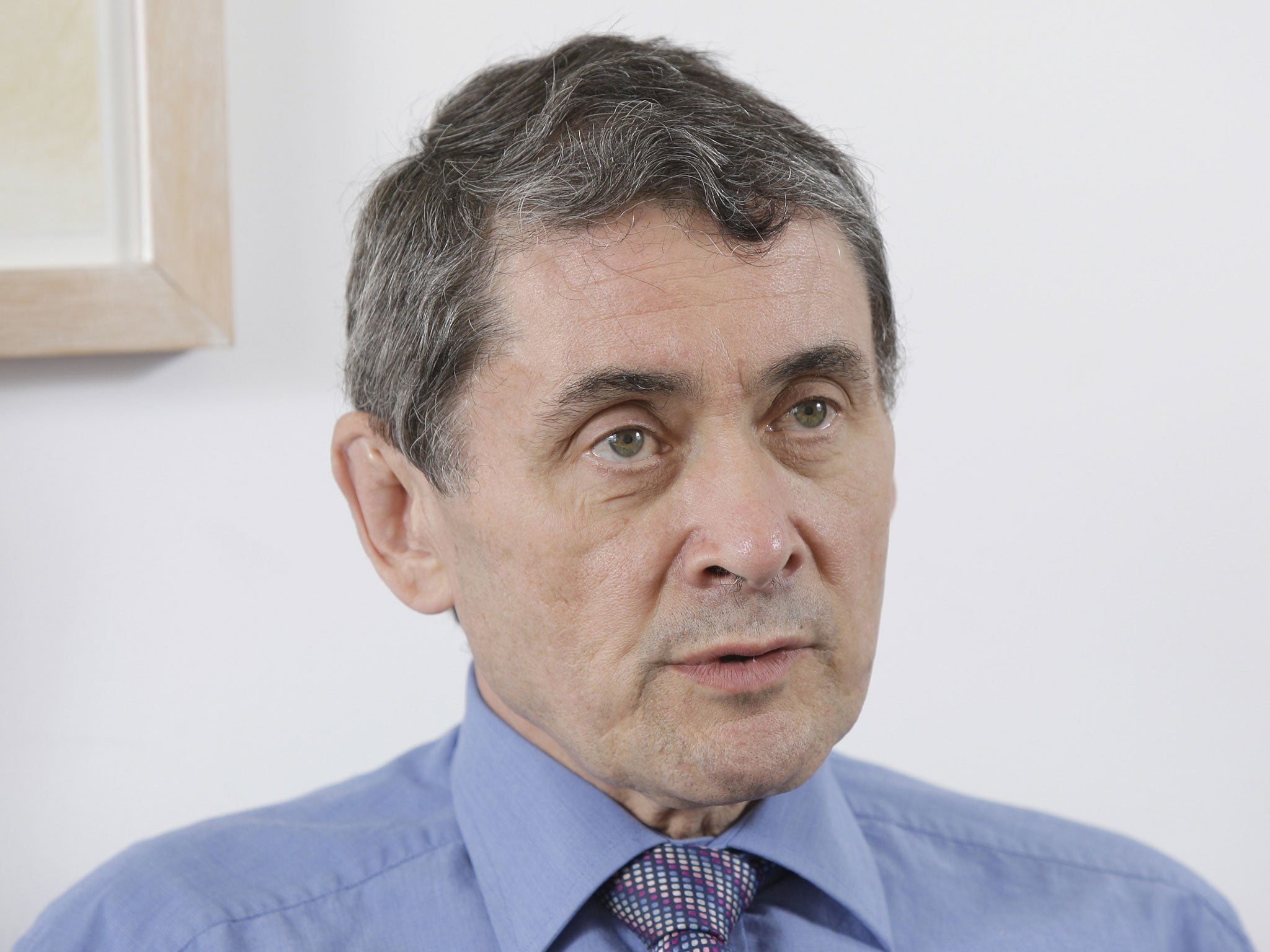Scottish independence could be 'very positive' for health, says Sir Harry Burns
Scotland’s former chief medical officer said it could help people feel more in control of their lives

Your support helps us to tell the story
From reproductive rights to climate change to Big Tech, The Independent is on the ground when the story is developing. Whether it's investigating the financials of Elon Musk's pro-Trump PAC or producing our latest documentary, 'The A Word', which shines a light on the American women fighting for reproductive rights, we know how important it is to parse out the facts from the messaging.
At such a critical moment in US history, we need reporters on the ground. Your donation allows us to keep sending journalists to speak to both sides of the story.
The Independent is trusted by Americans across the entire political spectrum. And unlike many other quality news outlets, we choose not to lock Americans out of our reporting and analysis with paywalls. We believe quality journalism should be available to everyone, paid for by those who can afford it.
Your support makes all the difference.Scotland’s former top doctor has suggested independence could be “very positive” for the nation’s health - if it left people feeling more in control of their lives.
Sir Harry Burns, who stepped down as Scotland’s chief medical officer earlier this year, told BBC Radio Scotland's Crossfire programme: “The question is, would people in an independent country feel more in control of their lives?
"If they did, then that would be very positive for their health. If people felt that they were able to engage more with local government, with central government and make choices more easily for themselves then that would improve their health."
His comments were welcomed by supporters of the Yes campaign, as the referendum to decide Scotland’s future is now less than two months away.
Sir Harry also said he feared for the NHS in England, where ministers have made "very different" decisions to Scotland.
But he added that the question of how leaving the UK and becoming independent would make people feel more in control would "depend very much on the political decisions that are made".
He stated: "At the moment, decisions - particularly about the health service - being made in England are very different from the decisions being made in Scotland.
“That is very important because I fear for the way the health service is going in England.”
SNP MSP Aileen McLeod, a member of Holyrood's Health Committee, said the comments from the “highly respected former chief medical officer are very welcome indeed”.
She added: “Sir Harry recognises the opportunities independence could bring for Scotland's health as a nation, stating that if this led to people feeling more in control of their lives then their health would improve.
"Sir Harry also adds to the growing number of people raising concern about the NHS south of the border.
“With the powers of the Scottish Parliament we have been able to protect our NHS from privatisation. But Westminster remains obsessed with dismantling the NHS - and cuts to its budget south of the border would have a knock-on impact in Scotland in the event of a No vote. This is a risk we can't take.
"Only a Yes vote gives us the powers we need to ensure that Westminster privatisation of the NHS stops at the border - and that the NHS in Scotland can continue to deliver world-class health care for everyone who needs it."
Dr Willie Wilson, co-founder of the NHS for Yes group, said: "When someone of Sir Harry's stature and expertise says that independence could have a very positive impact on improving the country's health, everybody should take notice."
Earlier this month, pro-UK campaigners were accused of “distorting” the words of the newly-elected president of the European Commission, Jean-Claude Juncker, after he said the EU needs to “take a break” from expansion and there would be no new members of the EU in the next five years.
Opponents of Scottish Independence seized these comments and suggested his remarks signalled a ‘Yes’ vote in Scotland's forthcoming independence referendum would also be a vote to leave the EU.
They claimed an independent Scotland would be forced to get back in the queue for EU membership and would not be back in before 2019.
But Mr Juncker's office has since confirmed he was not referring to Scotland in his comments and he was actually referring to countries already in an accession process with the EU, BBC Scotland reported.
Additional reporting by Press Association
Join our commenting forum
Join thought-provoking conversations, follow other Independent readers and see their replies
Comments